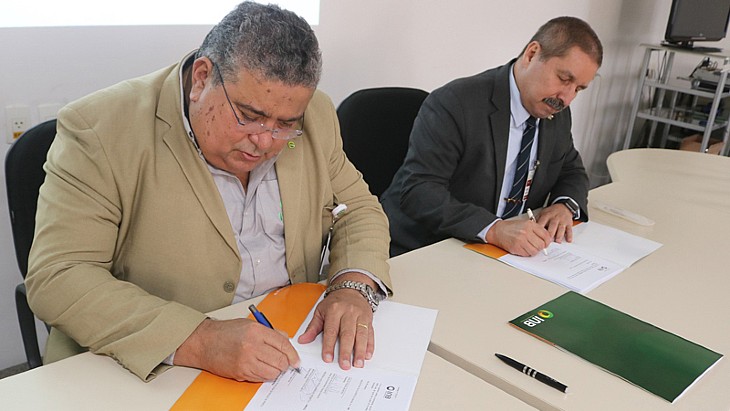The first phase of the enrichment plant was completed at the end of 2022 and has 10 cascades of ultracentrifuges in operation, to enrich uranium for the production of fuel for the country's nuclear power plants. According to INB this allows it to meet 70% of the demand of Angra 1, reducing dependence on overseas suppliers.
The second phase is called the Commercial Uranium Enrichment Plant with more than 30 cascades of ultracentrigues, with the aim of providing the country with self-sufficiency in uranium enrichment: "The forecast is that, by the year 2033, the company will be able to meet, with fully national production, the fuel demand of Angra 1 and Angra 2 and, by 2037, the needs of Angra 3."
INB President Carlos Freire Moreira said the development was very important for the country, adding: "This undertaking should be a source of pride, not only for INB workers, but for all Brazilians, since the isotopic enrichment of uranium is a state-of-the-art technology and 100% national, developed by the Brazilian Navy in partnership with the Institute of Energy and Nuclear Research."
Amazul CEO Newton Costa said the company had been preparing for two years to start working on the project which he said would guarantee "the country's energy security with clean energy, with positive impacts in tackling climate change".
The two men signed the contract during a ceremony to celebrate the 20th anniversary of the creation of INB's Isotopic Enrichment Technical Board.
INB's fuel fabrication plant (Fábrica de Combustível Nuclear, FCN - also referred to as INB Resende), designed by Siemens, has a capacity of 160 tonnes per year pellet production and 280 tonnes per year fuel assembly production. Brazil has two nuclear reactors, Angra 1 and 2, which generate about 3% of its electricity, with a third under construction.
Amazul describes itself as incorporated in 2013 with "the objective of absorbing, promoting, developing, transferring and maintaining activities sensitive to the activities of the Navy Nuclear Program, the Submarine Development Program and the Brazilian Nuclear Program" and says its commitment is to "use nuclear technology to save lives, improve people's quality of life, guarantee energy security with clearn energy and defend the country's sovereignty".





_23009.jpg)

_13505.jpg)
_87975.jpg)






